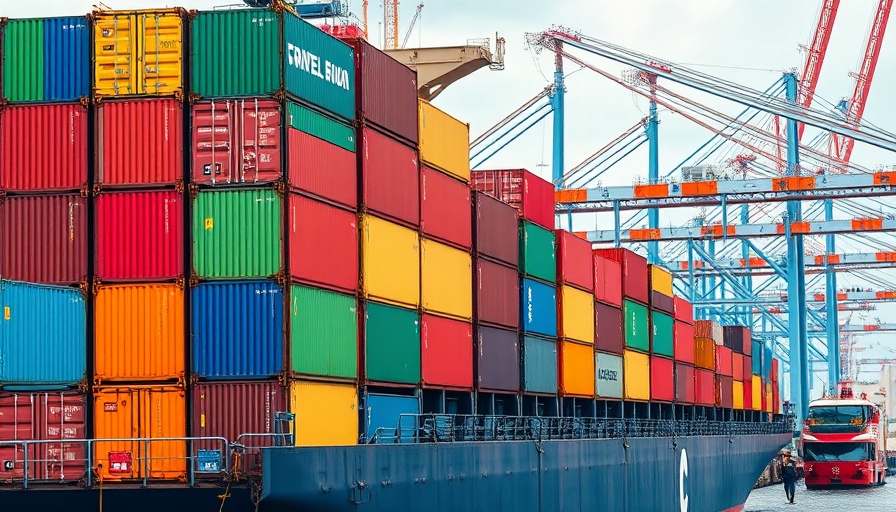
How Tariffs Could Reshape Texas’s Economy
The recent announcement of tariffs by President Trump on imports from Mexico, Canada, and China is sending ripples through the Texas economy, a state deeply intertwined with cross-border trade. The implementation of 25 percent tariffs on items from Mexico, Texas's largest trading partner, has raised alarms among local leaders, economists, and business owners alike. As these tariffs take effect, many Texans could face rising prices on essential goods, with estimates suggesting potential losses exceeding $47 billion for the state. This article delves into how these tariffs may disrupt various sectors, including manufacturing and agriculture, and examines their broader implications on the Texas economy.
Manufacturing Concerns: Job Losses on the Horizon?
Texas's manufacturing sector, which saw a decline last month amidst uncertainty surrounding the tariffs, is now facing more challenges. The Federal Reserve Bank of Dallas highlighted that industry executives are anxious about the potential impact of tariffs, leading to hesitancy in investment and job creation. San Antonio and Arlington, two key auto-manufacturing hubs, are particularly vulnerable. In fact, the mayors of these cities have voiced their concerns in a letter to Senators Cruz and Cornyn, emphasizing that the tariffs pose a “job-killing threat” that could be felt throughout the state.
The Power Grid at Risk: A Hidden Consequence of Tariffs
Perhaps one of the most alarming aspects of the new tariffs is their potential impact on Texas's power grid. Essential components such as transformers could see increased costs and delays, hindering much-needed upgrades to the Electric Reliability Council of Texas (ERCOT) grid. The Atlantic Council, a nonpartisan think tank, has cautioned that these tariffs might stifle the ability to maintain a reliable power supply. For a state that has faced significant energy supply challenges in the past, these tariff-related delays could spell trouble.
The Farmers Speak: Impact on Texas Agriculture
Texas farmers and ranchers find themselves at the crossroads of this tariff war, facing heightened costs on equipment and supplies which could ultimately result in higher prices for consumers. Congresswoman Jasmine Crockett voiced this sentiment, highlighting how a trade war with Mexico could cripple the agricultural sector. As farmers struggle to keep up with rising operational costs, the implications could extend beyond the fields and into grocery store aisles, affecting the everyday Texans who rely on affordable food.
Political Reactions: Divided Opinions on Tariff Effects
The political landscape in Texas is polarized regarding the tariffs, with some leaders downplaying their impacts while others raise alarms. Governor Abbott labeled the tariffs as “negotiation tactics,” suggesting no immediate concern, while detractors like Congresswoman Crockett vehemently oppose them, warning of the economic consequences that lie ahead. As Texas moves forward, it becomes essential that policymakers engage in constructive dialogue to address these pressing concerns and support affected sectors.
Eyeing a Complex Future: What Lies Ahead for Texans?
As Texas navigates the fallout from these tariffs, experts forecast a complex interplay of economic challenges and opportunities. The current landscape necessitates resilience and adaptability from both businesses and consumers. Companies may need to rethink their supply chains to mitigate the effects of rising costs, and local governments must remain vigilant in advocating for the needs of their constituents. The economic ramifications of these tariffs will likely be felt for the foreseeable future, making it imperative for Texans to stay informed and engaged.
In conclusion, the impact of tariffs on Texas presents both challenges and opportunities. It is crucial for all stakeholders—business owners, policymakers, and residents alike—to be proactive in responding to these changes and working toward sustainable solutions.
 Add Row
Add Row  Add
Add 




 Add Row
Add Row  Add
Add 

Write A Comment